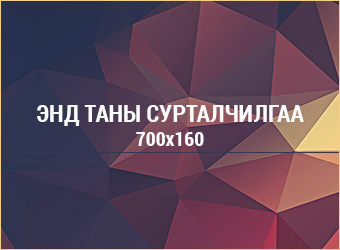Social
Tensions in relationship between the Supreme Court and the Tsets of the Constitution

5 min
The Mongolian constitutional system makes the Judiciary vulnerable to political horse-trading, The Defacto Gazette No. 13. A recent conflict between the Tsets of the Constitution (Tsets) and the Supreme Court shows a further example of this vulnerability.
The Tsets is the body responsible for constitutional control in Mongolia. The nature of this institution has been much disputed over the past 25 years. The Tsets names itself as the Constitutional Court of Mongolia. From a European procedural law perspective, this institution is closer to a parliamentary petition committee than to a constitutional court, The Defacto Gazette, No. 17. Nevertheless, the nine members of the Tsets could play a powerful role as means of pressure if it may rely on support of the Parliament.
In 2005, Tsets decided that administrative courts did not have competence of reviewing the decisions of the Prime Minister (PM) and his Cabinet (the Government). The relevant law provisions were consequently repealed. In the time of the previous Parliament, new laws allowing administrative court review of the Government’ decisions had been enacted. Since 2016, the administrative courts started reviewing decisions such as 49 percent of shares of “Erdenet” mining or Winter/Spring horse race.
On 2 April 2018, Mr. Odbayar, the Head of the Tsets, demanded the Supreme Court to correct the “wrong practice of judicial review of the Government‘s decisions by administrative courts.” This letter was published and public discussions including a TV debate took place. On 4 May, the Supreme Court responded to Mr. Odbayar stating that it “refuses to satisfy the demand.”
Opinion
There is no doubt that the Government’s decisions should be reviewed by administrative courts if rule of law and human rights should be enforced. The question on scope of judicial review is a complicated issue. Generally, one should ask first why the system makes this open confrontation between the Tsets and the Supreme Court possible before diving into details on scope of judicial review.
In Mongolia, the Tsets proceedings are launched by simple citizens' petition (a complaint or report), The Defacto Gazette, No. 17. This is a bizarre system that provides for a rear door to narrow-interests political and business groups so that they may re-start political negations at a given time by simply sending a “citizen” to the Tsets with a report.
In Europe, for example, higher barriers to launching a procedure before the Constitutional Court are common. Constitutional courts in Europe are normally the very last court instance. A citizen should first go through the entire court system up until the Supreme Court in order to seek a protection of his or her rights. Only after three instances of court proceedings, he or she may lodge a complaint before the Constitutional Court. This way, the system ensures a clear positioning of the Constitutional Court in the constitutional and court systems and most importantly the application of the laws by courts consistent with the Constitutional Court readings.
In many countries in Europe, there is a possibility of abstract constitutional court review of laws (after or before promulgation) regardless of a specific legal dispute and of whether the applicant is affected. Different than in Mongolia, individual citizens are not entitled to file applications for this type of proceedings! The application may only be filed by a political authority such as the President or the Prime Minister (Cabinet) or a number of the members of the Parliament (in Germany, at least one quarter of MPs and in France, at least 60 MPs). This way, the procedural law prevents the abuse of the system that is happening in today’s Mongolia by means of the Tsets proceedings.
To summon up, the confrontation between the Tsets and the Supreme Court is a result of a system failure. In future, the Mongolian constitutional system should ensure checks and balances rather than confrontations and political horse-trading between the Tsets, the Parliament, the Government and the Supreme Court. A reform of the Tsets should be a priority of the constitutional reform debates. Open confrontations between the Tsets and the Supreme Court may not be carried on as they are damaging the public trust in law and order.
May 2018
Like the article?
Comments (0)
Upvote
0 people (0%)
Түдгэлзсэн
0 people (0%)
Дэмжээгүй
0 people (0%)










 @
jargaldefacto
@
jargaldefacto 
 @
jariunaa1
@
jariunaa1 
